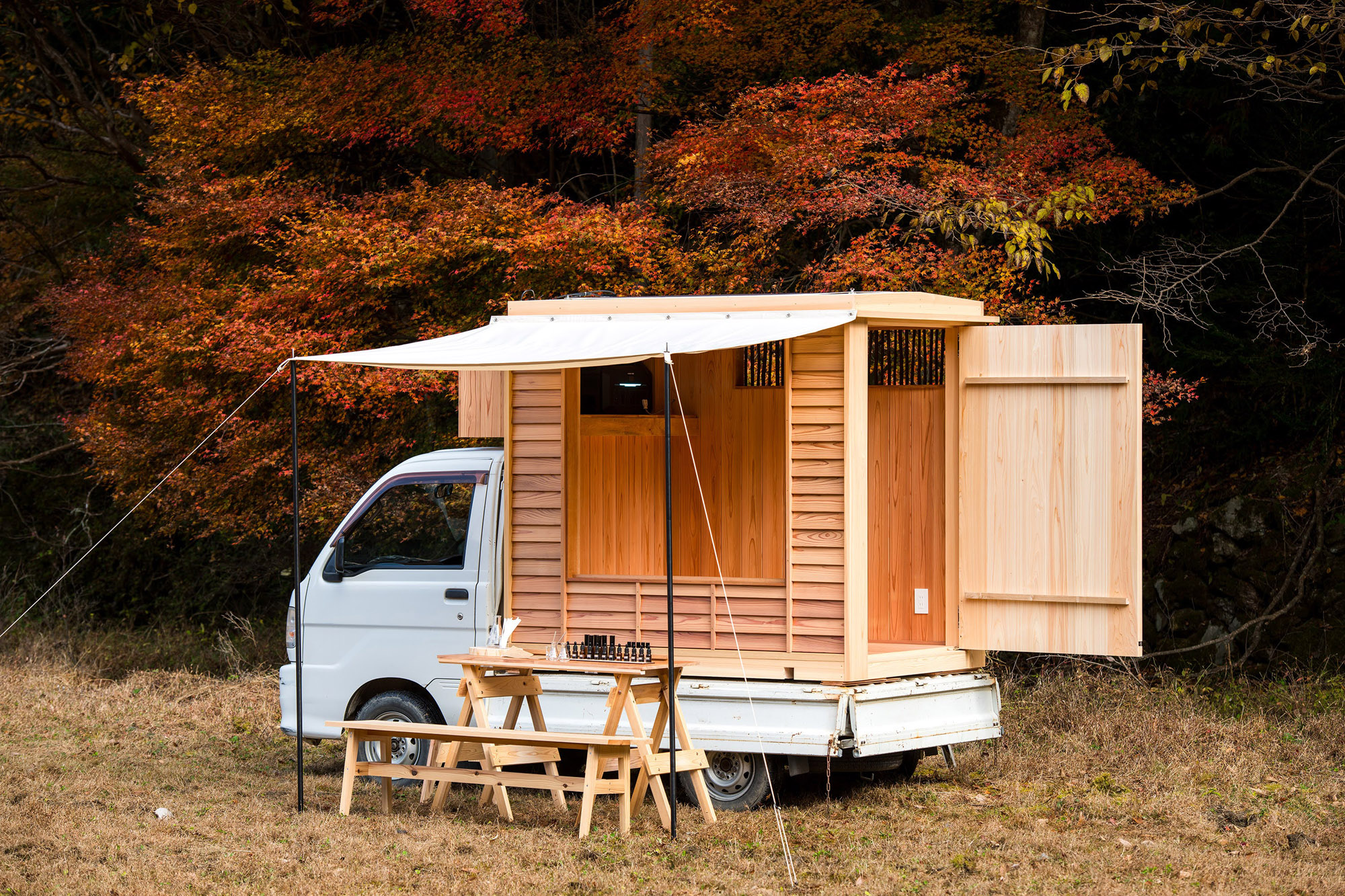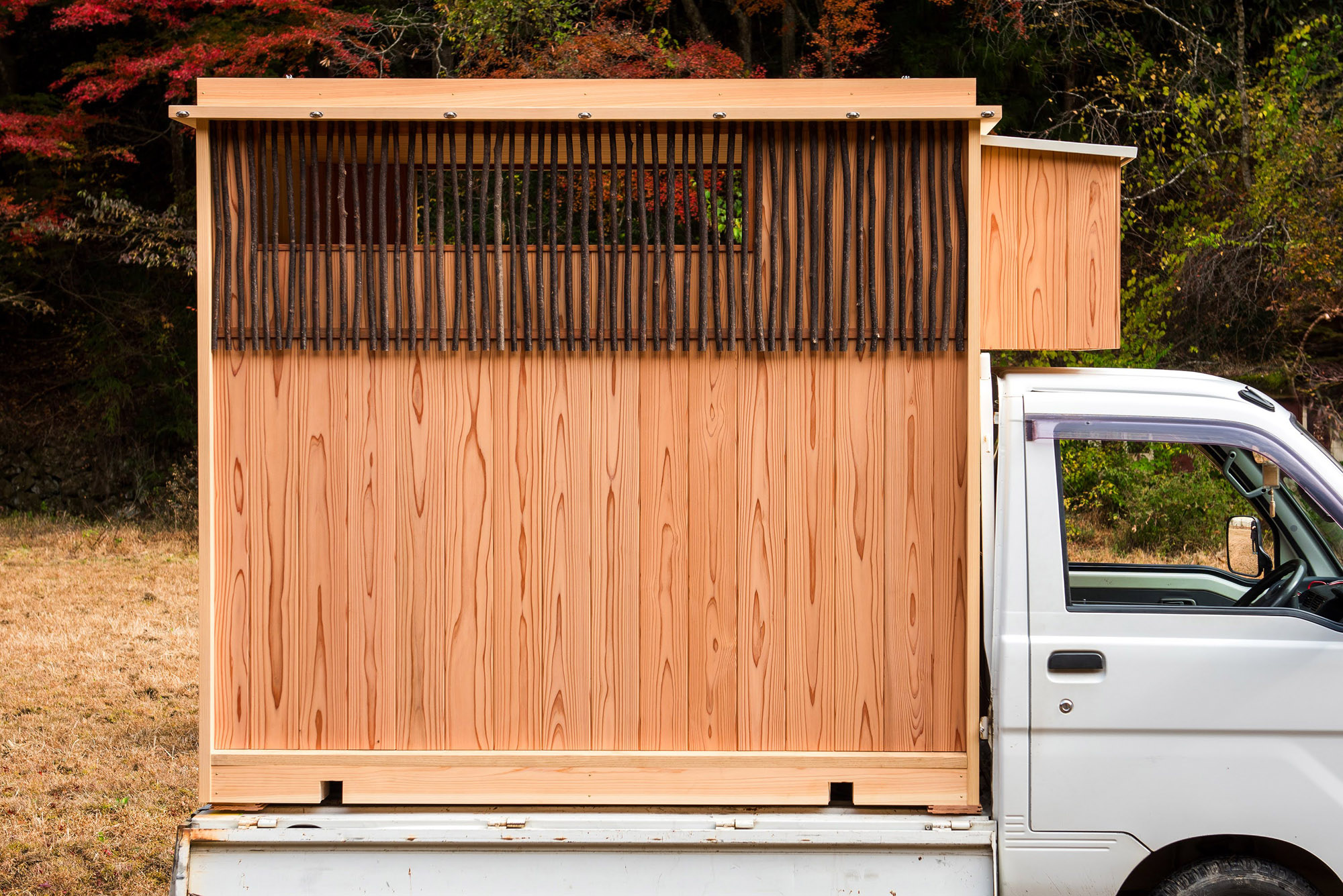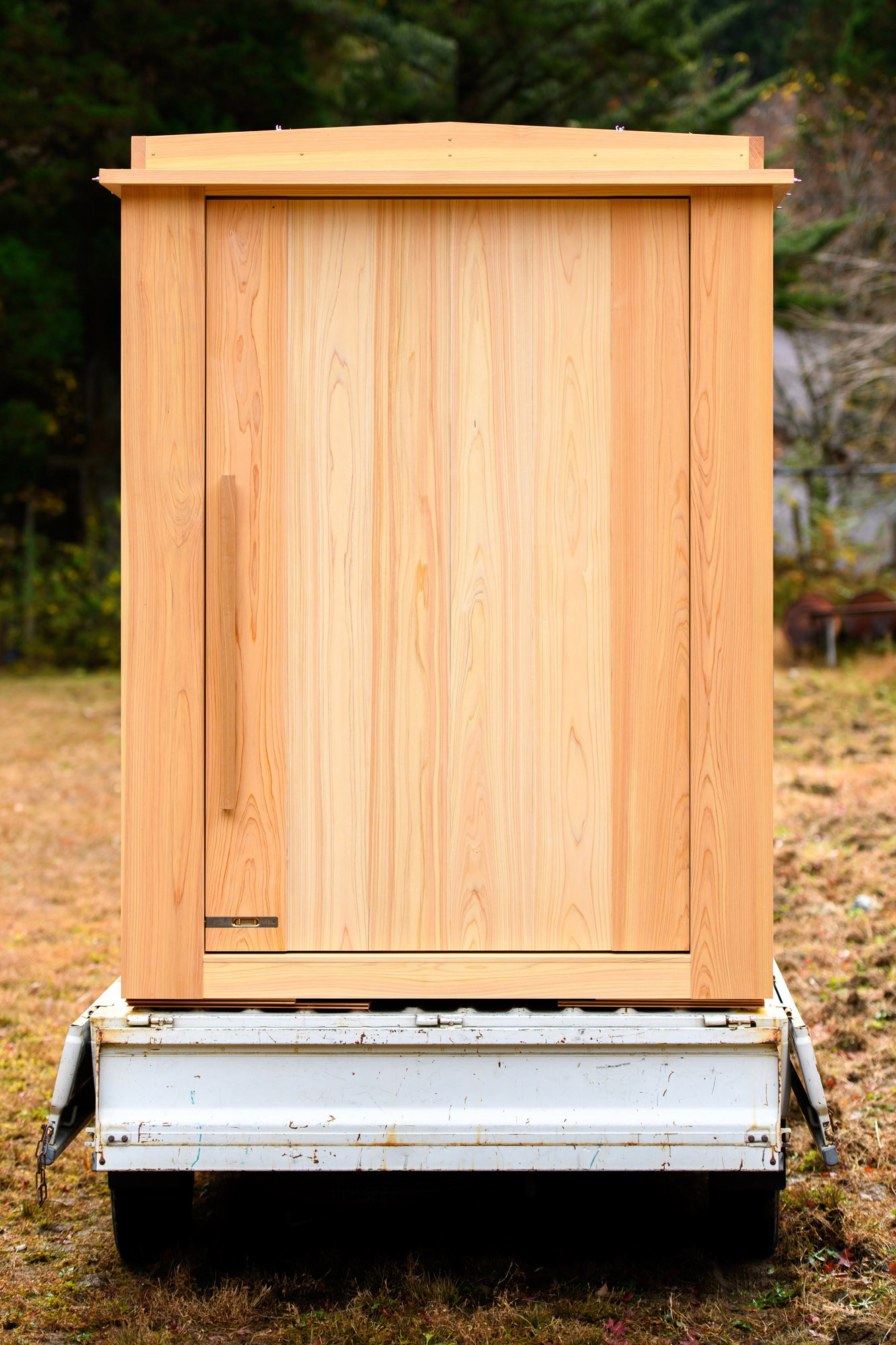Takeshi Ikeuchi’s kei truck is a minimalist Japanese mobile showroom
Takeshi Ikeuchi's kei truck design is a Japanese timber specialist’s minimalist mobile showroom

Receive our daily digest of inspiration, escapism and design stories from around the world direct to your inbox.
You are now subscribed
Your newsletter sign-up was successful
Want to add more newsletters?

Daily (Mon-Sun)
Daily Digest
Sign up for global news and reviews, a Wallpaper* take on architecture, design, art & culture, fashion & beauty, travel, tech, watches & jewellery and more.

Monthly, coming soon
The Rundown
A design-minded take on the world of style from Wallpaper* fashion features editor Jack Moss, from global runway shows to insider news and emerging trends.

Monthly, coming soon
The Design File
A closer look at the people and places shaping design, from inspiring interiors to exceptional products, in an expert edit by Wallpaper* global design director Hugo Macdonald.
A chance encounter at a forest campsite led to architect Takeshi Ikeuchi’s unusual commission for a moving wooden showroom for timber specialist Takeda Forestry. The initial brief from the company, based in Ehime on Shikoku island, Japan, was to both show off some of its milled sugi (cedar) and hinoki (cypress) planks; and design a showroom on wheels that could be used flexibly – for example as a small shop or for workshops.
‘Takeda’s factory sits in a rural place called Oda, famous for the quality of both types of timber,’ Ikeuchi explains. ‘This is Kei truck country, and we thought, what would be better than using a tiny truck as the base for their moving showroom?’

A reimagined kei truck by Takeshi Ikeuchi
Kei trucks are a stalwart of transportation in rural Japan. With a body a little over 3m long and under 1.5m wide, they are perfect for manoeuvering round narrow country roads. While nimble and easy to drive, their relatively large bed can pack up to 350kg, making them the perfect tool to haul farm produce, firewood or timber.
It was indeed the bed of the truck that determined the dimensions of the ‘showroom’ (1.1m wide X 1.7m long), and as traffic regulations only allow for a total vehicle height of 2.5m, the inside of the cabin is a mere 1.5m high. Its two sides have been finished in red knot-free cedar – one side in clapboard, and the other in vertical tongue and groove planks. The ceiling and door at the back are knot-free hinoki wood.

There is a large opening to one side allowing a clear view of the interior. This comes in handy when the showroom is turned into a mobile store. A narrow window on the opposite end is wrapped in a spaced-out row of raw kuromoji branches that bring a rougher, organic touch to the otherwise minimalist exterior.
The roof is covered in a simple tent fabric and features a large solar panel that charges a battery stored in a keyaki wood box on top of the truck’s cab. Hooks have been installed on both sides so a simple tarp can be added to extend the footprint of the showroom as needed.
As with all good Japanese craftsmanship, the finish shows a deep understanding and appreciation of the timber. The wood is left untreated and will undoubtedly age beautifully over time. The wooden structure can easily be removed from the bed of the truck by inserting two standard scaffolding pipes into two holes at the base, and simply lifting the tiny cabin off.
Receive our daily digest of inspiration, escapism and design stories from around the world direct to your inbox.
‘It was important that the showroom could be lifted on and off easily for flexibility,’ Ikeuchi explains. ‘If the showroom proves a success, Takeda is even considering offering DIY house kits for sale in the future.’ We hope they ship internationally.
A version of this article appears in the April 2024 issue of Wallpaper*, available in print, on the Wallpaper* app on Apple iOS, and to subscribers of Apple News +. Subscribe to Wallpaper* today
Originally from Denmark, Jens H. Jensen has been calling Japan his home for almost two decades. Since 2014 he has worked with Wallpaper* as the Japan Editor. His main interests are architecture, crafts and design. Besides writing and editing, he consults numerous business in Japan and beyond and designs and build retail, residential and moving (read: vans) interiors.